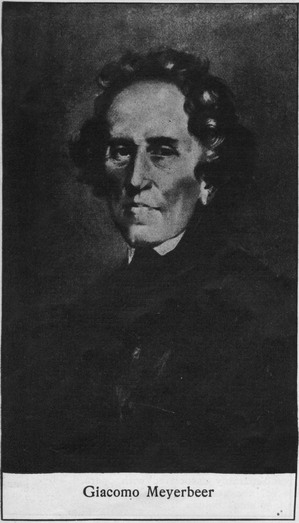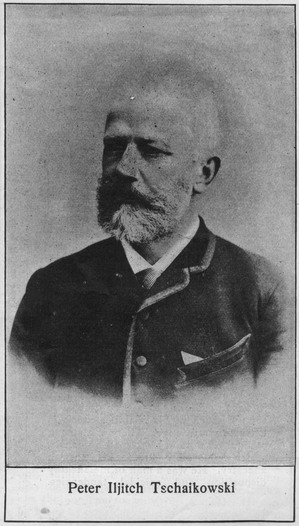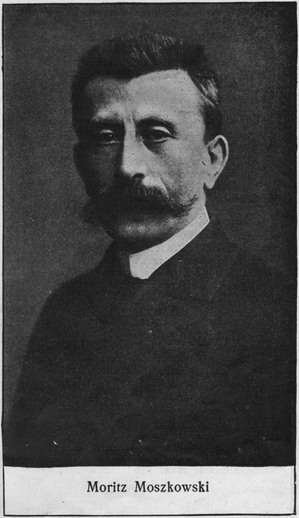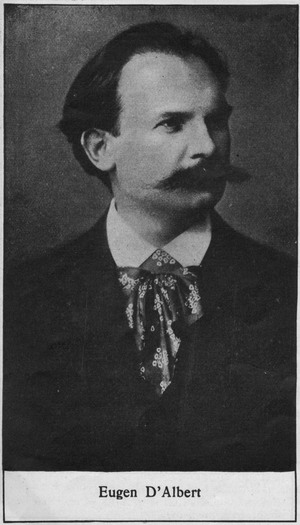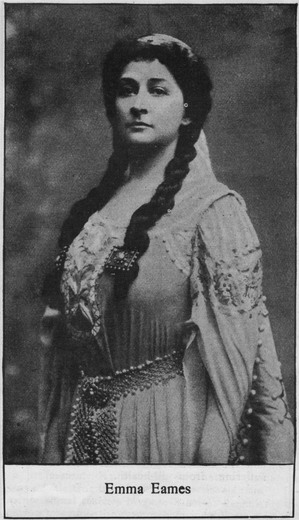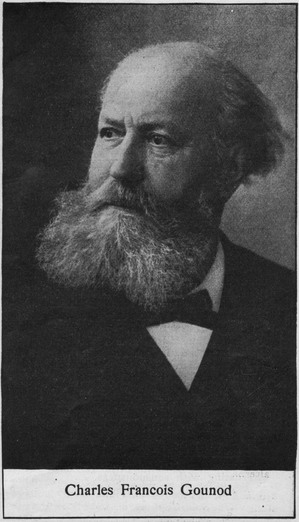The famous dramatic composer was born in Berlin, September 5, 1791; died in Paris, May 2, 1864. Of Jewish family, his real name was Jakob Liebmann Beer. A wealthy relative made him his heir on condition that he should prefix the name “Meyer” to his surname. Giacomo is the Italian form of “Jakob.” He was a pupil of Clementi for piano, and commenced his composition studies under Zelter, Mendelssohn’s teacher, but soon left him for Anselm Weber, and later studied under the Abbé Vogler, at Darmstadt. Later he went to Vienna, and studied piano under Hummel. He had already composed an oratorio and two operas, but they had not been very well received on account of the heavy contrapuntal style in which they were written. In order to correct this fault Meyerbeer went to Venice in 1815, and commenced writing in the style of Rossini, who was at that time in the height of his popularity. He wrote many operas in this style with considerable success. In 1826 he went to Paris, and it was here that his greatest success was achieved, commencing with Robert le Diable. Les Huguenots followed, and many other familiar ones. In 1842 Meyerbeer went to Berlin as General Music Director. He composed a considerable amount of sacred music though his name is inseparably associated with opera.
Tschaikowski was born on Christmas Day, 1840, at Wotkinsk, Russia. He originally intended to become a lawyer, but eventually studied composition at the St. Petersburg Conservatory under Rubinstein. In 1866 he became an instructor of harmony at the newly-founded Moscow Conservatory, a post which he retained until 1877. Through the generosity of a lady admirer, whom he knew only by correspondence for some years, he was provided with an income of about $2500 a year, which enabled him to devote himself entirely to composition. His life was an uneventful one, and was passed partly in St. Petersburg, partly in Italy, and partly in Switzerland. In 1891 he came to New York for the dedication of the Carnegie Music Hall. He died of cholera at St. Petersburg, November 6, 1893. His music is extremely characteristic of the Russian temperament, though modified with Teutonic ideas. It possesses much fiery energy and is highly colored in its harmonic basis and strange rhythms. He is at his best in compositions for the orchestra, though much of his chamber music is extremely attractive. There is a strong pessimistic note in almost all his music, which is possibly due to his Russian ancestry. He was a man of melancholy disposition and suicidal tendencies.
Moskowski was born at Breslau, August 23, 1854. His father, a Polish gentleman of independent means, early recognized his son’s talent. Moszkowski was taught at home, in the Dresden Conservatory, and at the Conservatories of Stern and Kullak, in Berlin, where later he taught for several years. He made Berlin his headquarters, making many tours through Germany, and also to Warsaw and Paris, establishing for himself a high reputation as a pianist. In 1897 Moszkowski moved to Paris, where he now resides. He is best known as a composer of salon-music, and few writers of the day have a more pleasing style. He seems to possess the special gift of being able to compose characteristic music of varied national character, from a Hungarian czardas to the well-known “Spanish Dances.” Though his salon-music vies in popularity with that of his distinguished sister-in-law, Mme. Chaminade, he has also written in the larger forms, having successfully produced an opera, Boabdil, der Maurenkönig, Berlin, 1892, the music to Grabbe’s Don Juan and Faust, 1896, and other works of distinction. He has an attractive personality, and in a biography he wrote of himself to a friend in America he describes himself as “a very tidy, aimiable man.”
Eugen D’Albert was born in Glasgow, Scotland, April 10, 1864. His father was a well-known musician in that district, and was responsible for his son’s early training. Eugen then went to London, where he studied composition under Sir Arthur Sullivan. Prout and Stainer, and the pianoforte under Pauer. In 1881 he won the coveted Mendelssohn Scholarship, which entitled him to study abroad. He proceeded to Vienna, where Richter was his teacher. Richter recognized his talent, and sent him to Weimar, where he studied under Liszt. Liszt was much impressed with the young musician and dubbed him “the young Tausig,” on account of his remarkable technic. D’Albert is perhaps the only man who has vied with Bülow in performing the feat of playing five Beethoven sonatas in succession at a single Gewandhaus concert in Leipsic. However, it is not only as a pianist that this brilliant musician has made his mark, but also as a composer. He has written a considerable amount of chamber music, and has not neglected the larger forms, having several operas to his credit, and also some orchestral works. The operas which have been attracting most attention at present are “Tiefland” and “Magda,” both of which have been recently produced in New York.
This distinguished American dramatic soprano was born in Shanghai, China, August 13, 1867. Her parents were American missionaries. At the age of five she went with her mother, a talented musician, to Bath, Maine. After learning the first principles of music from her mother she proceeded to Boston, where she studied under Miss Munger. From 1886 to 1888 she studied in Paris, singing under Mme. Marchesi and stage deportment under M. Pluque. Owing to the intrigues which surround such business she had some difficulty in gaining a foothold on the French operatic stage, but eventually was cast for the rôle of Juliette at the Grand Opera in Gounod’s Romeo et Juliette, succeeding with great applause in a rôle previously sung by Adelina Patti. She remained in Paris for two more years, and then made her début in London, appearing at the Royal Opera House, Covent Garden, in the part of Marguerite, in Gounod’s Faust. In October, 1891, she appeared for the first time in New York, and since then has been appearing regularly in New York and London during their respective seasons, with the exception of the season 1892-3, when she appeared in Madrid, and the season 1895-6, when she was suffering from ill-health.
One of the most eminent of French sacred and dramatic composers, Gounod, was born in Paris, June 17, 1818, dying there on October 17, 1893. His father was a well-known painter and engraver; his mother was also very highly gifted, being much interested in musical, artistic and literary education. Gounod was sent early to the Lycée Saint-Louis. He was already a proficient pianist. In 1836 he entered the Paris Conservatoire. Here he won the Second Prix de Rome in 1837, and the Grand Prix in 1839, which entitled him to study in Italy, whither he went. He also went to Vienna before finally returning to his beloved Paris. He devoted himself to church work, and, indeed all through his life he was profoundly moved by religious sentiment, and at times thought seriously of taking holy orders. While always esteemed by musicians, it was not until the production of Faust, in 1859, that real success came. During the Franco-German war he retired to London, where he resided somewhat unhappily, though he did some important work there. He returned to Paris in 1875. Probably no French composer has attained so wide a popularity as Gounod. His work is noteworthy for a loftiness of conception, and spiritual ecstacy alternating with sensuousness.


